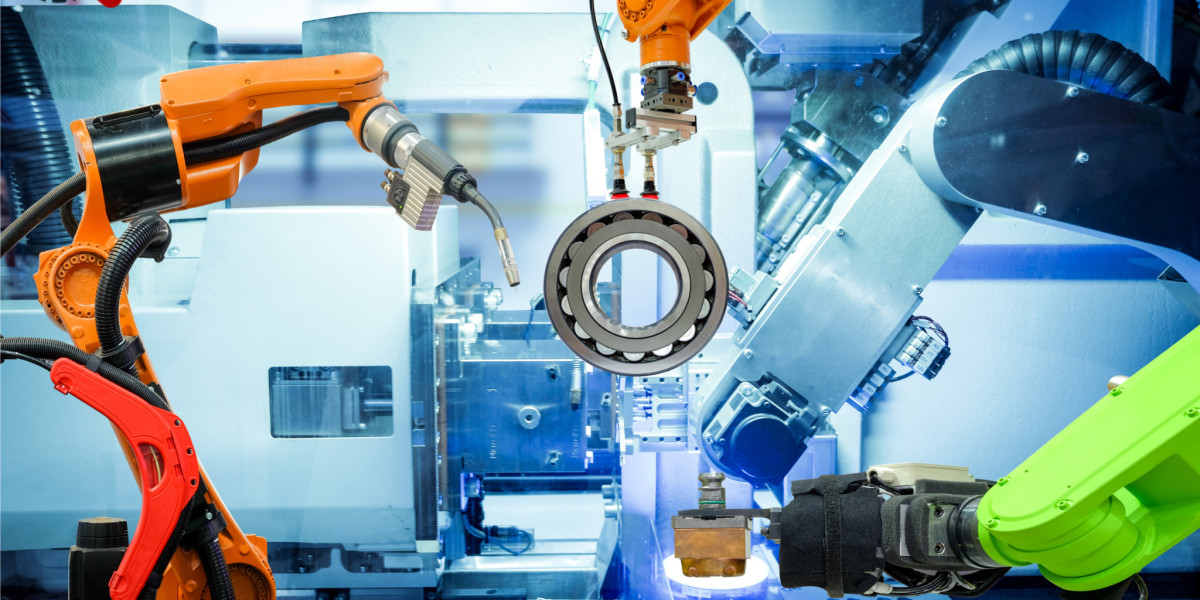As Per Market Research Future, Hazardous Waste Recycling Services are becoming increasingly important as industries generate significant amounts of hazardous waste. These services focus on safely collecting, treating, and recycling hazardous materials to minimize environmental impact. The growing awareness of environmental regulations and the need for responsible waste management are driving the demand for these services. Additionally, advancements in recycling technologies are enhancing the efficiency and effectiveness of hazardous waste recycling, making it a crucial component of the industrial waste management landscape.
The Industrial Waste Management Market has grown significantly as industries expand worldwide and sustainability becomes a central business priority. Industrial activities generate large quantities of waste, including chemical residues, metals, construction debris, oils, sludges, and various hazardous substances. Managing these waste streams effectively is crucial for safeguarding human health, protecting the environment, and meeting regulatory obligations. The market consists of a broad ecosystem involving waste collection, transportation, treatment, disposal, recycling, and energy recovery. As global environmental policies strengthen, the need for robust waste management solutions has become more essential than ever.
Market Dynamics Shaping Growth
The market is driven by multiple factors, including rapid industrialization, stringent government regulations, and heightened corporate responsibility toward environmental conservation. Industries such as manufacturing, mining, oil & gas, automotive, chemicals, and pharmaceuticals produce millions of tons of waste annually. With stricter environmental rules and financial penalties for non-compliance, organizations increasingly seek reliable waste management partners. In addition, rising public awareness about pollution and sustainability has encouraged industries to adopt eco-friendly waste handling practices. Many companies now integrate waste minimization strategies into production processes to reduce long-term environmental risks and enhance brand reputation.
Types of Industrial Waste and Their Impact
Industrial waste can be broadly categorized into hazardous and non-hazardous waste. Hazardous waste includes chemicals, radioactive materials, solvents, batteries, and medical by-products that require specialized handling and treatment. Non-hazardous waste includes construction debris, scrap metals, plastic, and other materials that are easier to recycle. Improper disposal of industrial waste can degrade soil quality, contaminate water sources, and release toxic gases into the atmosphere. This environmental impact has increased the demand for advanced waste treatment technologies such as bioremediation, thermal treatment, chemical neutralization, and high-efficiency recycling. As industries shift toward circular economy models, recycling and waste-to-energy methods have gained stronger market traction.
Technological Advancements Transforming the Market
Modern technology plays a key role in improving efficiency and reducing environmental harm. Automation, artificial intelligence, IoT-based monitoring systems, and smart waste tracking platforms are transforming how companies manage industrial waste. Digital solutions help track waste from generation to disposal, ensuring transparency and compliance. Waste-to-energy technologies are also gaining prominence, converting industrial waste into usable heat, electricity, or fuel. These innovations not only reduce landfill waste but also provide industries with cost-saving energy alternatives. Technology-driven recycling processes are enabling the recovery of valuable materials such as metals, oils, and chemicals, contributing to resource conservation.
Challenges in the Industrial Waste Management Market
Despite its growth, the market faces challenges such as high operational costs, lack of waste segregation at the source, limited infrastructure in developing regions, and low awareness among small enterprises. Hazardous waste handling requires skilled personnel and advanced equipment, which increases the overall cost of waste disposal. Additionally, many regions still lack strict enforcement of environmental laws, leading to improper disposal practices. The transportation of hazardous waste poses safety risks and requires robust logistics and tracking mechanisms. Addressing these challenges is essential for achieving widespread adoption of sustainable waste solutions.
Future Outlook and Opportunities
The future of the industrial waste management market looks promising as governments and industries continue to prioritize environmental sustainability. Growing investments in recycling infrastructure, rising adoption of renewable energy, and increased emphasis on reducing carbon footprints will boost market expansion. Industries are expected to collaborate more closely with waste management firms to develop long-term sustainability strategies. The emergence of green technologies, improved waste-to-energy systems, and government-led initiatives will further accelerate growth. As circular economy principles become part of global industrial practices, waste will increasingly be viewed as a resource rather than a burden.
FAQs
1. What is industrial waste management?
Industrial waste management involves collecting, transporting, treating, recycling, and disposing of waste generated by industries in a safe and environmentally responsible manner.
2. Why is industrial waste management important?
Proper waste management protects the environment, ensures worker safety, supports regulatory compliance, and promotes sustainable industrial development.
3. Which industries generate the most industrial waste?
Major contributors include manufacturing, mining, oil & gas, chemicals, pharmaceuticals, construction, and automotive sectors.




